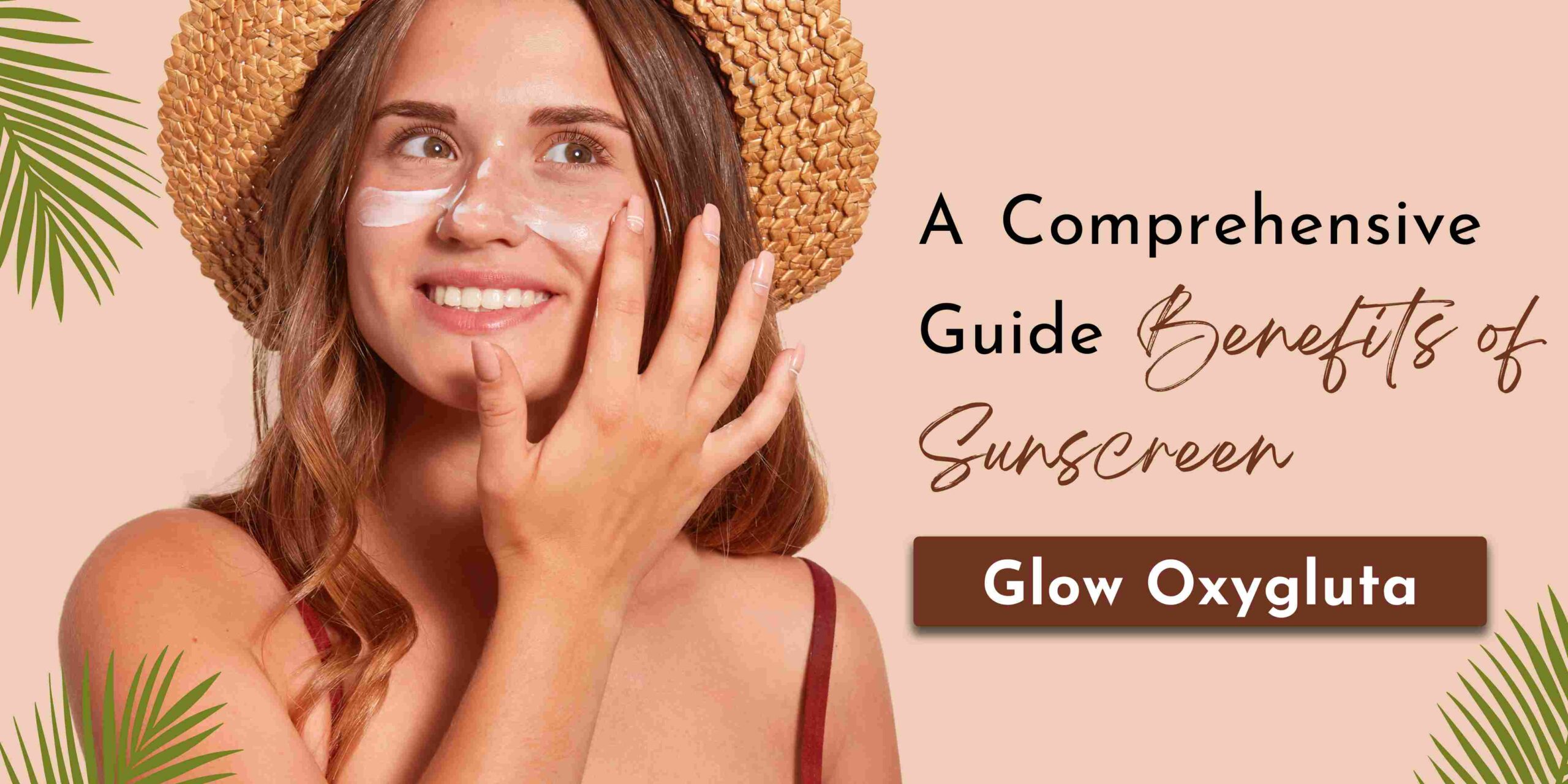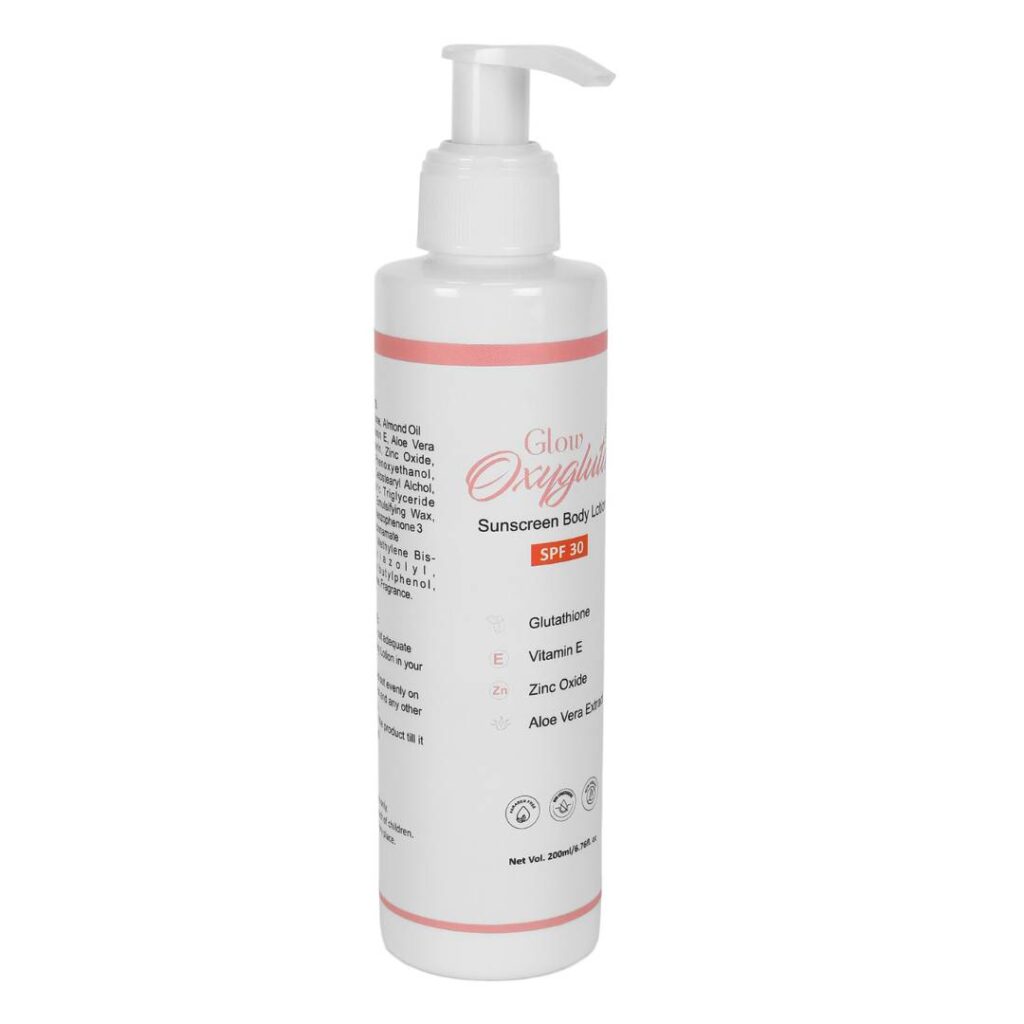
-
By admin
- In Skin Care
The Ultimate Guide to Sunscreen: Unveiling the Wonders for Luminous Skin
In the realm of skincare, few products rival the importance of sunscreen. Whether lounging on a tropical beach or running errands, incorporating sunscreen into your daily routine is paramount for maintaining healthy, glowing skin. Join us as we delve into the myriad benefits of sunscreen, explore the finest options for various skin types, and uncover the science behind SPF protection.
Exploring the Benefits of Sunscreen
Sunscreen isn’t merely a seasonal accessory; it’s a year-round necessity for shielding your skin against the sun’s harmful UV rays. Let’s delve into the extensive benefits of using sunscreen:
- UV Protection: Sunscreen acts as a protective shield, blocking harmful UV rays that cause sunburn, premature ageing, and potentially skin cancer.
- Delays Premature Aging: UV radiation accelerates skin ageing, leading to wrinkles, fine lines, and age spots. Regular sunscreen application helps preserve youthful skin by thwarting these visible signs of ageing.
- Reduces Skin Cancer Risk: Prolonged exposure to the sun sans protection heightens the risk of developing skin cancers like melanoma. Consistent sunscreen use significantly lowers this risk.
- Promotes Even Skin Tone: Sunscreen prevents UV-induced hyperpigmentation, ensuring a more uniform and radiant complexion over time.
Optimal Sunscreen Selection for Facial Care
With a myriad of sunscreen options on the market, finding the perfect match can be daunting. Here are some factors to consider when selecting the best sunscreen for your face:
- SPF Level: Opt for a broad-spectrum sunscreen with SPF 30 or higher to shield against both UVB and UVA rays effectively.
- Formulation: Choose lightweight, non-comedogenic formulas tailored for the face to avoid clogged pores and breakouts.
- Skin Type Consideration: Tailor your sunscreen choice to your skin type. Those with oily or acne-prone skin may prefer oil-free or gel-based formulas, while individuals with dry skin may benefit from hydrating or tinted sunscreens.
- Additional Benefits: Some sunscreens offer added skincare benefits such as antioxidants or moisturizers, providing a holistic approach to sun protection and skincare.
Top Recommendations for Every Skin Type
- Best Sunscreen for Sensitive Skin:– Crafted with gentle, mineral-based ingredients, this sunscreen offers broad-spectrum protection without irritating.
- Best Natural Sunscreen:– Harnessing the potency of botanical extracts and mineral filters, this natural sunscreen provides effective UV protection while being gentle on the skin and the environment.
- Best Sunscreen for Face with SPF 50:– Offering high SPF protection, this lightweight sunscreen is perfect for those seeking maximum sun protection without a heavy feel.
- Best Everyday Wear Sunscreen:– With its sheer, non-greasy formula, this sunscreen is ideal for daily use under makeup or alone for a fresh-faced look.
Understanding Sunscreen: Why It's Crucial
- UV Protection: Sunscreen acts as a protective shield, blocking harmful UV rays that cause sunburn, premature aging, and potentially skin cancer.
- Delays Premature Aging: UV radiation accelerates skin aging, leading to wrinkles, fine lines, and age spots. Regular sunscreen application helps preserve youthful skin by thwarting these visible signs of aging.
- Reduces Skin Cancer Risk: Prolonged exposure to the sun sans protection heightens the risk of developing skin cancers like melanoma. Consistent sunscreen use significantly lowers this risk.
- Promotes Even Skin Tone: Sunscreen prevents UV-induced hyperpigmentation, ensuring a more uniform and radiant complexion over time.
Choosing the Right Sunscreen: Factors to Consider
When selecting the perfect sunscreen, several factors come into play:
- SPF Level: Opt for a broad-spectrum sunscreen with SPF 30 or higher to shield against both UVB and UVA rays effectively.
- Formulation: Choose lightweight, non-comedogenic formulas tailored for the face to avoid clogged pores and breakouts.
- Skin Type Consideration: Tailor your sunscreen choice to your skin type. Those with oily or acne-prone skin may prefer oil-free or gel-based formulas, while individuals with dry skin may benefit from hydrating or tinted sunscreens.
- Additional Benefits: Some sunscreens offer added skincare benefits such as antioxidants or moisturizers, providing a holistic approach to sun protection and skincare.
How to Apply Sunscreen Correctly
Mastering the application technique is key to reaping the full benefits of sunscreen:
- Amount: Apply a generous amount of sunscreen to cover all exposed areas of the skin thoroughly.
- Reapplication: Reapply sunscreen every two hours, or more frequently if swimming or sweating profusely.
- Coverage: Ensure even coverage by applying sunscreen in a thin, even layer and rubbing it into the skin until fully absorbed.
- Often Overlooked Areas: Don’t forget to apply sunscreen to commonly overlooked areas such as the ears, neck, hands, and feet.
Additional Sun Protection Tips
In addition to sunscreen, consider incorporating these additional sun protection measures into your routine:
- Seek Shade: Limit sun exposure during peak hours (10 am to 4 pm) by seeking shade whenever possible.
- Wear Protective Clothing: Cover up with long-sleeved shirts, pants, wide-brimmed hats, and sunglasses to minimize sun exposure.
- Stay Hydrated: Drink plenty of water to keep your skin hydrated and minimize the risk of dehydration from sun exposure.
Benefits of Wearing Sunscreen on Your Face and Body
Sunscreen offers a plethora of benefits for both your face and body:
- Prevents Premature Aging: Regular sunscreen use helps prevent wrinkles, fine lines, and age spots, preserving a youthful appearance.
- Reduces Skin Cancer Risk: By protecting against UV radiation, sunscreen lowers the risk of developing skin cancers such as melanoma.
- Promotes Even Skin Tone: Sunscreen prevents UV-induced hyperpigmentation, resulting in a more uniform and radiant complexion over time.
Sunburn Treatment: How to Get Rid of a Sunburn
Despite our best efforts, sunburns can still occur. Here’s how to effectively treat a sunburn:
- Cool Compress: Apply a cool, damp cloth or take a cool shower to soothe sunburned skin and alleviate discomfort.
- Hydrate: Drink plenty of water to stay hydrated and help your skin heal from the inside out.
- Moisturize: Apply a moisturizing lotion or aloe vera gel to hydrate sunburned skin and promote healing.
Sunscreen Recommendations Change If You Have Darker Skin
While sunscreen is essential for all skin types, individuals with darker skin tones may have unique sunscreen needs:
- Broad-Spectrum Protection: Opt for a broad-spectrum sunscreen to protect against both UVA and UVB rays.
- Higher SPF: Consider using a sunscreen with a higher SPF to ensure adequate protection against UV radiation.
- Mineral-Based Formulas: Look for mineral-based sunscreens with ingredients like zinc oxide or titanium dioxide for gentle, effective protection.
Other Ways to Protect the Skin
In addition to sunscreen, incorporate these strategies into your sun protection routine:
- Wear Sunglasses: Protect your eyes from UV radiation by wearing sunglasses with UV protection.
- Stay Indoors: Limit outdoor activities during peak sun hours to reduce sun exposure.
- Monitor Moles: Regularly check your skin for changes in moles or new growths and consult a dermatologist if you notice anything unusual.
How to Use Sunscreen Gel
Sunscreen gel offers a lightweight, refreshing alternative to traditional sunscreen lotions:
- Amount: Apply a sufficient amount of sunscreen gel to cover all exposed areas of the skin.
- Spread Evenly: Spread the sunscreen gel evenly over the skin and massage it gently until fully absorbed.
- Reapplication: Reapply sunscreen gel every two hours, or more frequently if swimming or sweating profusely.
Overdose - When Too Much Sunscreen Becomes a Concern
While sunscreen is essential for protecting your skin, excessive application can have unintended consequences:
- Skin Irritation: Excessive sunscreen application may cause skin irritation or allergic reactions in some individuals.
- Environmental Impact: Overuse of sunscreen can contribute to environmental pollution, particularly in aquatic ecosystems.
Takeaway - Key Points to Remember
As we conclude our exploration of sunscreen, here are the key points to remember:
- SPF 30 or higher is recommended for optimal protection against UV radiation.
- Apply sunscreen generously and reapply every two hours, or more frequently if swimming or sweating.
- Incorporate additional sun protection measures such as seeking shade and wearing protective clothing.
Side Effects - Potential Reactions to Sunscreen
While sunscreen is generally safe for use, some individuals may experience side effects or allergic reactions:
- Skin Irritation: Some individuals may experience skin irritation or allergic reactions to certain sunscreen ingredients.
- Photosensitivity: Certain sunscreen ingredients may increase the skin’s sensitivity to sunlight, leading to sunburn or other adverse reactions.
Precautions- Safety Measures When Using Sunscreen
To maximize the benefits of sunscreen while minimizing potential risks, take the following safety measures when using sunscreen:
- Perform Patch Test: Before applying sunscreen to large areas of the skin, perform a patch test to check for any adverse reactions.
- Check Expiration Date: Check the expiration date of sunscreen products and discard any expired or outdated products.
Interactions - Possible Interferences with Sunscreen Usage
Certain factors and substances may interact with sunscreen, affecting its efficacy or causing adverse reactions:
- Skincare Products: Some skincare products may contain ingredients that interact with sunscreen, affecting its effectiveness or irritating it.
- Medications: Certain medications may increase the skin’s sensitivity to sunlight, requiring additional sun protection measures.
Overdose - Risks and Considerations of Excessive Sunscreen Application
While sunscreen is essential for protecting your skin, excessive application can pose risks and considerations:
- Environmental Impact: Overuse of sunscreen can contribute to environmental pollution, particularly in aquatic ecosystems.
- Skin Irritation: Excessive sunscreen application may cause skin irritation or allergic reactions in some individuals.
FAQ About Sunscreen
SPF stands for Sun Protection Factor, and it indicates the level of protection a sunscreen provides against UVB rays. It’s crucial because higher SPF means more protection against sunburn and skin damage.
Yes, there are sunscreens specifically formulated for sensitive skin that are gentle and hypoallergenic. Look for mineral-based or physical sunscreens with zinc oxide or titanium dioxide.
Yes, sunscreen is essential for all skin types, regardless of skin tone. While darker skin tones have more natural protection against UV rays, they’re still susceptible to sun damage and skin cancer.
Yes, applying sunscreen under makeup provides an extra layer of protection against UV rays. Look for oil-free or non-comedogenic sunscreens that won’t interfere with makeup.
Yes, you can apply sunscreen over moisturizer. Let the moisturizer absorb into the skin before applying sunscreen for optimal protection.
Conclusion
Incorporating sunscreen into your daily skincare routine is essential for maintaining youthful, radiant skin and safeguarding against the harmful effects of UV radiation. By selecting the right sunscreen for your skin type and needs, you can enjoy the sun responsibly while preserving your skin’s health and beauty for years to come. Embrace the power of sun protection and let your skin radiate with confidence every day.
Remember, consistency is key when it comes to sunscreen application. Make it a habit to apply sunscreen generously and reapply every two hours, especially when outdoors or after swimming or sweating. With the right sunscreen as your ally, you can bask in the sunshine safely and revel in the glow of healthy, protected skin.

